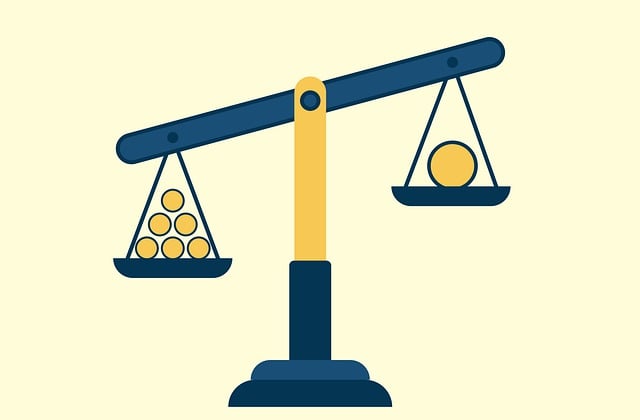Healthcare Compliance experts are vital for navigating complex regulations like HIPAA to protect patient data privacy and avoid legal repercussions. They guide institutions through intricate processes, fostering ethical practices, public trust, and robust compliance programs. By staying updated on Understanding Exchange Regulation Compliance Requirements, these professionals empower healthcare organizations to excel in compliance management while mitigating risks associated with criminal defenses and economic crimes.
In the intricate landscape of healthcare, compliance experts play a pivotal role in navigating complex regulations. These professionals ensure that healthcare organizations adhere to strict standards, from exchange compliance requirements to data privacy and security. By staying abreast of industry changes through continuous education, they facilitate smooth operations and mitigate risks. Understanding Exchange Regulation Compliance Requirements is key to unlocking efficient, secure, and compliant healthcare services, fostering trust among patients and providers alike.
- Navigating Complex Healthcare Regulations
- Expertise in Exchange Compliance Requirements
- Ensuring Data Privacy and Security
- Continuous Education for Industry Changes
Navigating Complex Healthcare Regulations

Navigating Complex Healthcare Regulations is a specialized task that demands deep expertise. With constantly evolving laws and guidelines, healthcare organizations face significant challenges in ensuring compliance. Experts in Healthcare Compliance play a pivotal role in demystifying these intricate regulations, especially when it comes to Understanding Exchange Regulation Compliance Requirements. They guide institutions through the labyrinthine processes, ensuring adherence to federal and state mandates, including those related to patient data privacy, billing practices, and clinical trials.
These professionals are well-versed in balancing the stringent requirements of general criminal defense, white collar and economic crimes, advocating for their clients within the healthcare sector. By staying abreast of legal developments and industry trends, they enable organizations to mitigate risks, avoid costly penalties, and maintain public trust. This proactive approach not only safeguards the interests of patients and providers but also fosters a culture of ethical practice within the healthcare landscape.
Expertise in Exchange Compliance Requirements

Healthcare Compliance experts are invaluable when it comes to navigating complex Understanding Exchange Regulation Compliance Requirements. They possess a deep knowledge of the intricate rules and regulations that govern healthcare exchanges, ensuring that every aspect of an organization’s operations aligns with legal standards. These professionals aren’t just familiar with the letter of the law; they understand its spirit, enabling them to predict potential pitfalls and proactively address them.
Their expertise isn’t merely theoretical; it translates into practical applications. They can help organizations avoid costly complete dismissals of all charges and jury trials by identifying and mitigating risks before they escalate. Through their strategic guidance, healthcare institutions can build robust compliance programs that foster a culture of adherence to regulations, ultimately leading to winning challenging defense verdicts when faced with scrutiny.
Ensuring Data Privacy and Security

In the realm of healthcare, where sensitive patient information is exchanged frequently, ensuring data privacy and security is paramount. Healthcare compliance experts play a crucial role in navigating the complex landscape of exchange regulation compliance requirements. They are the guardians of confidential records, implementing robust measures to safeguard digital and physical data from unauthorized access or breaches. These professionals understand that the general criminal defense strategies often vary in this sector due to stringent regulations like HIPAA (Health Insurance Portability and Accountability Act) in the US.
By staying updated with evolving laws and guidelines, they help organizations avoid indictment for data-related offenses. Moreover, their expertise extends beyond mere compliance; they foster a culture of privacy awareness among staff, train them on best practices, and design systems that protect not just patients’ records but also the philanthropic and political communities that rely on secure healthcare data. This holistic approach ensures that healthcare institutions maintain trust and integrity in handling sensitive information.
Continuous Education for Industry Changes

In the dynamic landscape of healthcare, staying ahead of industry changes is paramount for compliance experts. Continuous education isn’t just a recommendation; it’s a necessity. With regulatory environments constantly evolving, professionals must be adept at understanding and interpreting new Exchange Regulation Compliance Requirements. This proactive approach ensures they can navigate complex legal territories with precision, especially in light of the fast-paced nature of healthcare technology advancements and shifting legislative frameworks.
By keeping abreast of industry developments, these experts can offer tailored guidance to healthcare organizations, enabling them to achieve extraordinary results in compliance management. This is particularly crucial in mitigating risks associated with general criminal defense and white collar and economic crimes, which often find fertile ground in the intricate web of healthcare regulations.
Healthcare organizations rely on experts to navigate complex regulations, especially with evolving exchange compliance requirements. By ensuring data privacy and security, these professionals safeguard sensitive patient information. Continuous education is vital for keeping up with industry changes, allowing them to provide expert guidance tailored to each facility’s unique needs. Understanding Exchange Regulation Compliance Requirements is essential for maintaining optimal healthcare services and upholding legal standards.






